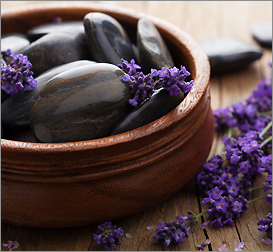When you cut your finger, your immune system triggers an inflammatory response to help speed healing. Once your finger’s better, that inflammation normally subsides. But what if, instead of your finger, inflammation targets your gut? And what if that inflammation didn’t go away? Instead, it simmered silently in the background, quietly fueling more inflammation and setting the stage for future health problems. That’s essentially what happens when you have chronic gut inflammation.
This type of chronic inflammation is defined as low-level systemic inflammation that can last for months or even years. (37) It’s been linked to many non-infectious diseases such as cardiovascular disease, type 2 diabetes, rheumatoid arthritis, and Alzheimer’s disease. (2) And your gut—or more specifically the bacteria in your gut—plays a key role in the development of this potentially damaging inflammation. (21)(8)
What is gut inflammation?
Your body is home to 100 trillion microorganisms. (2) These bacteria live on your skin and in every orifice of your body. But the largest number of microbes inhabit your intestinal tract. (15) Keeping this gut bacteria in balance is essential since a robust microbiota plays a key role in maintaining your health. When your gut bacteria becomes unbalanced—a condition called dysbiosis—it frequently causes intestinal inflammation by altering the expression of the genes that regulate inflammation. (35) This low-grade inflammation can then lead to increased intestinal permeability, commonly referred to as “leaky gut syndrome.” (28)
One factor that can set the stage for this simmering inflammation is a lack of microbial diversity in the gut. Studies show that, when there is a lack of diversity among the various strains of beneficial bacteria, harmful opportunistic gram-negative microbes like E. coli and B. fragilis activate the immune system and trigger an inflammatory response. (21)(31) Adding insult to injury, when these harmful microbes die, they release proinflammatory molecules called endotoxins. (2) Even if the level of these harmful microbes—whether dead or alive—isn’t high enough to make you acutely ill (think food poisoning), they trigger low levels of systemic inflammation that may contribute to widespread health problems. Indeed, scientists have discovered that people suffering from diseases linked to chronic inflammation also commonly have gut dysbiosis. (6)
Gut inflammation may be the underlying cause of an array of health problems, ranging from irritable bowel syndrome to heart disease. (14)
5 signs of inflammation in the gut
Gut inflammation can manifest itself in a variety of ways. While some of these directly target the digestive tract, others may be less obviously connected to the gut. In that case, it may require some detective work to uncover the connection between your symptoms and potential gut inflammation.
1. Irritable bowel syndrome
Irritable bowel syndrome (IBS) is a common condition marked by abdominal pain or discomfort, bloating, and altered bowel habits (i.e., constipation, diarrhea, or both). Symptoms may be triggered by stress or certain foods. (10) Historically, the cause of IBS was unknown. More recently, however, studies have found a link between reduced microbial diversity, chronic low-level inflammation in the mucosal lining of the gut, and the development of IBS. (36)(46)
Did you know?
More than 11% of people worldwide live with IBS. (13)
2. Inflammatory bowel disease
Inflammatory bowel disease (IBD) is an umbrella term for several chronic inflammatory conditions such as ulcerative colitis and Crohn’s disease. These autoimmune conditions are characterized by chronic inflammation in the gut as a result of a defective immune response. People with IBD can experience persistent diarrhea, abdominal pain, bloody stools, weight loss, and fatigue. (51) Not only do these symptoms disrupt everyday life, but the underlying inflammation can also, over time, damage the gastrointestinal tract and may increase the risk of colon cancer. (39)
3. Food sensitivities
The incidence of food sensitivities is on the rise. Food sensitivities trigger the immune system and initiate an inflammatory response to the offending food or food ingredient, such as gluten or dairy. This can cause gas, bloating, abdominal pain, and diarrhea. (7) In some instances, food sensitivity may also produce skin rashes, eczema, or even hives. (23)(43) Recent research has linked the development of food sensitivities to microbial dysbiosis, which triggers the immune response and subsequent inflammation. (7)(1)
Did you know?
Although often used interchangeably, the terms “food sensitivity,” “food intolerance,” and “food allergy” don’t describe the same thing. Food allergies cause a reaction to a food protein and involve an inflammatory pathway known as IgE. Food sensitivities involve a different inflammatory pathway called IgG. Food intolerances, on the other hand, are reactions that don’t involve the immune system. (12)(27)
Surprisingly, acne may be linked to chronic gut inflammation.
4. Acne
Some researchers now believe that there is a distinct connection between your gut microbiome and acne. According to one review out of Case Western University, a diverse microbiome supports healthy skin. One the other hand, as the researchers point out, dysbiosis can disrupt skin homeostasis, which sets the stage for acne. The researchers also speculate that, because dysbiosis increases intestinal permeability (leaky gut), inflammatory compounds could “leak” into the bloodstream and contribute to the development of acne. (41)
5. Autoimmune conditions
Recent studies suggest that gut dysbiosis may be linked to the onset of certain autoimmune conditions like lupus and multiple sclerosis. (25)(52) While the connection isn’t fully understood, these studies point to a compromised intestinal barrier as the underlying culprit. According to this research, harmful proinflammatory compounds pass through a damaged barrier and into the bloodstream of some people with autoimmunity. (25)
Habits that contribute to gut inflammation
The loss of microbial diversity and the subsequent inflammation is often a result of our daily habits and environment. Some of the worst offenders include:
- Eating a Western diet that is low in fiber and high in sugar and chemical additives (44)(53)
- Consuming artificial sweeteners (40)
- Overindulging in alcohol (5)
- Misusing antibiotics, antacids, and non-steroidal anti-inflammatory drugs (NSAIDs) (30)(24)(45)
- Experiencing chronic stress (17)
- Being exposed to industrial chemicals and environmental contaminants like air pollution (11)(42)
- Smoking (4)
How to reduce gut inflammation
Fortunately, there are some simple ways to support a healthy microbiome and reduce gut inflammation.
Eat an anti-inflammatory diet
What you eat can either promote dysbiosis and gut inflammation or discourage it. Adopting an anti-inflammatory diet has been shown to help. One study in the journal Gut found that eating a Mediterranean diet supports a healthy microbiome and reduces key inflammatory markers like C-reactive protein and interleukin-17. (19) A Mediterranean diet focuses on a variety of foods that fight inflammation in the gut like fish, olive oil, and plenty of vegetables. (49) Studies show that these foods don’t simply counter existing inflammation. They also provide antioxidant and anti-inflammatory benefits that support a healthy immune response and, hence, prevent the development of chronic, low-level inflammation. (9)
Aerobic exercise like running or swimming has been shown to reduce gut inflammation.
Exercise more
Exercise might not be the first thing you think of when it comes to gut health, but one animal study found that habitually participating in aerobic exercises like running promotes the growth of beneficial bacteria. This increase in friendly bacteria, in turn, produces the short-chain fatty acid, butyrate. Butyrate can promote repair of the gut lining and reduce inflammation. (34) Strive to get at least 30 minutes of moderate-intensity aerobic exercise five days per week. Check with your doctor before starting any new exercise program. (22)
Get enough sleep
Routinely getting poor sleep has been linked to a disruption in your microbial balance and an uptick in gut inflammation. (29) A study involving healthy young volunteers that appeared in the journal Molecular Metabolism found that even short-term sleep loss can cause subtle changes in the gut microbiota. (3) According to the American Academy of Sleep Medicine, getting seven to nine hours of good quality sleep supports overall health and a healthy immune response. (50)
Lower your stress levels
Recent studies have found that chronic stress changes your gut microbiome in a way that promotes inflammation. (33)(32) Although more research is needed, it’s believed that stress causes an excessive increase in certain pro-inflammatory bacterial strains. (47) Keep stress in check by routinely practicing calming activities like mindfulness meditation, progressive muscle relaxation, biofeedback, or deep breathing. (20)(48)(26)
Consider a probiotic
Adding a comprehensive (multistrain) probiotic to your daily routine can support a healthy microbiome. In fact, probiotic supplementation has been shown to enhance microbial diversity and reduce gut inflammation. (18)(38) But, since there are numerous probiotic supplements on the market—all offering different strains of beneficial microbes—it’s wise to work with your health care professional to find one that’s right for you.
The bottom line
Gut inflammation is the result of a microbial imbalance in the intestinal tract. This imbalance causes an immune response resulting in unchecked low-level inflammation. Over time, this inflammation can lead to a variety of chronic health problems such as IBD, some forms of heart disease, or type 2 diabetes. By adopting a few healthy lifestyle habits, however, you may be able to reduce gut inflammation and potentially help prevent more serious consequences.
If you’re looking for help with any of these conditions, and you’re in Ontario, contact me (Dr. Linda Brown, ND) at (647) 372-0062 for an appointment or a free 15-minute consult.
You can also book online at https://lindalbrown.janeapp.com . I offer appointments in person and virtually.


















